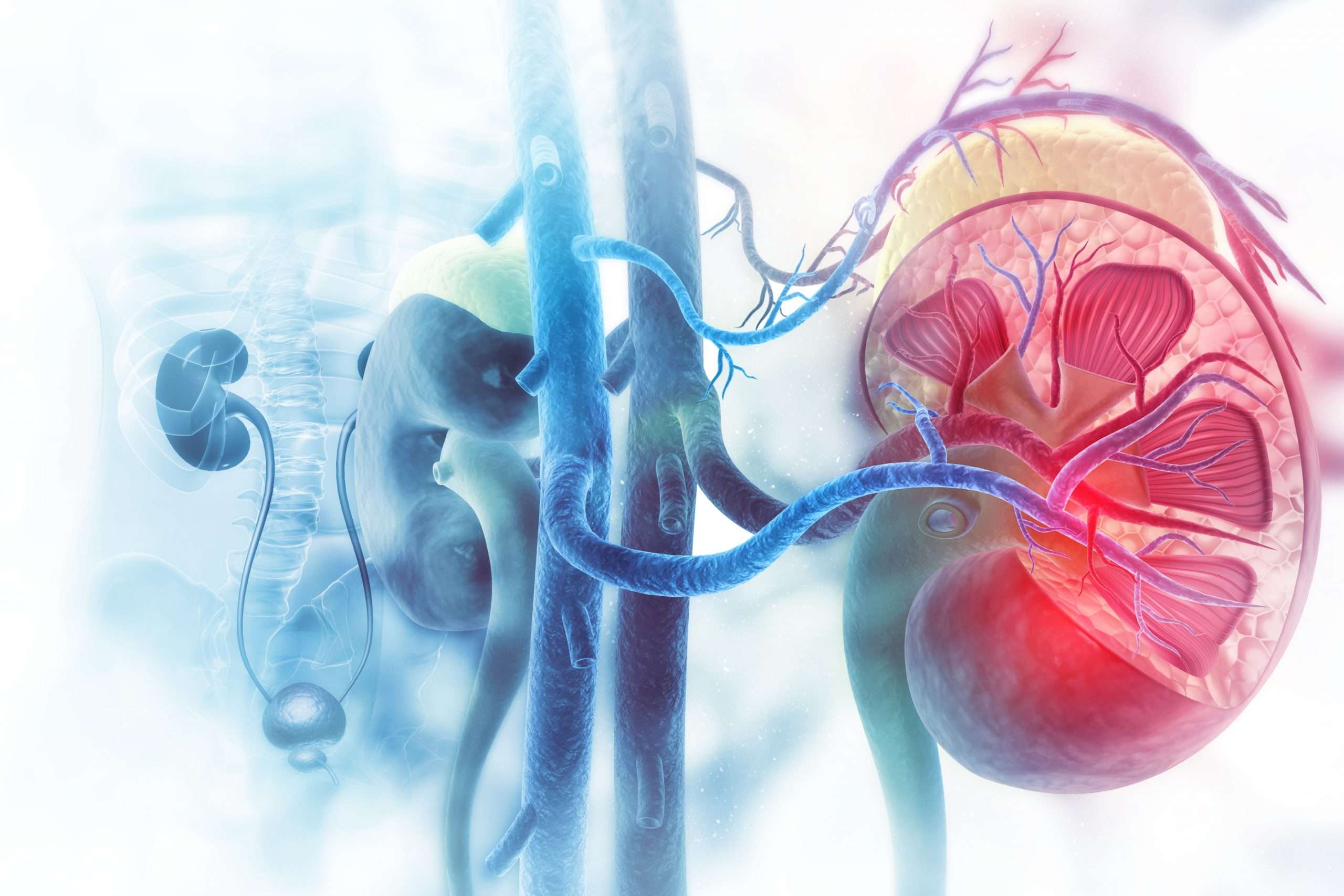
Kidney Cancer Treatment Options in the UK for Patients from Russia
26 Jul, 2024
 Healthtrip Team
Healthtrip TeamKidney cancer treatment in the UK is renowned for its advanced technology, innovative therapies, and highly skilled medical professionals. Patients with kidney cancer have access to a range of effective treatments tailored to their specific needs. Here’s an overview of the top kidney cancer treatment options available in the UK:
Most popular procedures in India
For patients from Russia facing a diagnosis of kidney cancer, seeking advanced treatment options is crucial. The UK offers a range of world-class medical facilities and cutting-edge technologies to treat kidney cancer. This blog aims to provide valuable insights into the top treatment options available in the UK, ensuring Russian patients can make informed decisions about their healthcare journey. Kidney cancer, also known as renal cancer, begins in the kidneys and can spread to other parts of the body if not treated promptly. The most common type is renal cell carcinoma (RCC). Treatment typically involves a combination of surgery, targeted therapy, immunotherapy, and radiation therapy, depending on the stage and specific characteristics of the cancer.
Wellness Treatments
Give yourself the time to relax
Lowest Prices Guaranteed!

Lowest Prices Guaranteed!
1. Surgery for Kidney Cancer
Surgery is a fundamental approach in the treatment of kidney cancer, primarily aimed at removing the tumor. In some cases, the procedure may involve the removal of the entire kidney, a process known as nephrectomy. This method is often preferred due to its effectiveness in eliminating cancerous cells and potentially curing the patient.
Types of Surgical Procedures:
1. Radical Nephrectomy: This involves the removal of the entire kidney along with surrounding tissues, including the adrenal gland and nearby lymph nodes if necessary. It is typically recommended for larger tumors or when the cancer has spread beyond the kidney.
2. Partial Nephrectomy: Also known as nephron-sparing surgery, this procedure focuses on removing only the tumor and a small margin of surrounding healthy tissue, leaving the rest of the kidney intact. It is often used for smaller tumors or in cases where preserving kidney function is crucial.
3. Laparoscopic Surgery: This minimally invasive technique uses small incisions and specialized instruments to remove the tumor or kidney. It offers benefits such as reduced pain, shorter recovery times, and fewer complications compared to traditional open surgery.
4. Robotic-Assisted Surgery: An advanced form of laparoscopic surgery, robotic-assisted surgery utilizes robotic systems to enhance precision and control during the operation. This technique allows for even smaller incisions, greater accuracy, and potentially quicker recovery.
Advantages of Minimally Invasive Surgery:
- Faster Recovery: Patients often experience quicker recovery times and shorter hospital stays compared to open surgery.
- Less Pain: Smaller incisions typically result in less postoperative pain and discomfort.
- Reduced Risk of Complications: Fewer complications are associated with minimally invasive procedures, including lower rates of infection and bleeding.
- Better Cosmetic Outcomes: Smaller scars and less tissue damage contribute to improved cosmetic results.
Surgery remains a critical component of kidney cancer treatment, and advancements in surgical techniques continue to improve patient outcomes and quality of life.
2. Targeted Therapy for Kidney Cancer
Targeted therapy is a form of cancer treatment that specifically targets the molecular changes associated with the growth and spread of cancer cells. Unlike traditional treatments such as chemotherapy, which can affect both cancerous and healthy cells, targeted therapies are designed to interfere with specific pathways or proteins involved in the cancer’s development and progression.
How Targeted Therapy Works:
1. Targeting Specific Molecules: Targeted therapies work by focusing on particular molecules or pathways that are critical for the survival and proliferation of cancer cells. These therapies can inhibit the growth signals that cancer cells use to thrive or can help the immune system recognize and attack cancer cells more effectively.
2. Blocking Angiogenesis: Many targeted therapies work by blocking angiogenesis, the process through which tumors create new blood vessels to supply themselves with nutrients. By disrupting this process, these therapies can starve the tumor and inhibit its growth.
3. Inhibiting Tumor Growth Signals: Targeted therapies can block the signals that cancer cells use to grow and divide. This includes inhibiting proteins or receptors on the surface of cancer cells that are involved in cell signaling and growth.
4. Enhancing the Immune Response: Some targeted therapies work by enhancing the body’s immune response against cancer cells, making it easier for the immune system to identify and destroy cancerous tissues.
Common Types of Targeted Therapy for Kidney Cancer:
1. Tyrosine Kinase Inhibitors (TKIs): These drugs block the activity of specific enzymes (tyrosine kinases) involved in tumor growth and blood vessel formation. Examples include sunitinib (Sutent) and pazopanib (Votrient).
2. mTOR Inhibitors: These drugs target the mTOR pathway, which helps regulate cell growth and division. By inhibiting this pathway, mTOR inhibitors can slow down the growth of cancer cells. Examples include everolimus (Afinitor) and temsirolimus (Torisel).
3. Checkpoint Inhibitors: Although primarily classified under immunotherapy, some checkpoint inhibitors can be considered a form of targeted therapy. These drugs block proteins that prevent the immune system from attacking cancer cells, such as pembrolizumab (Keytruda) and nivolumab (Opdivo).
Advantages of Targeted Therapy:
1. Precision: Targeted therapies are designed to specifically attack cancer cells without significantly affecting normal cells, potentially leading to fewer side effects compared to traditional treatments.2. Effectiveness in Advanced Cases: These therapies can be particularly effective for advanced kidney cancer that has not responded to other treatments, offering new options for managing the disease.
3. Personalized Treatment: Targeted therapies are often used based on the specific molecular characteristics of the patient’s cancer, allowing for a more personalized approach to treatment.
Targeted therapy represents a significant advancement in the treatment of kidney cancer, offering hope for patients with advanced stages of the disease or those who have not responded to traditional treatments. By focusing on the specific mechanisms driving cancer growth, these therapies aim to provide more effective and less toxic treatment options.
3. Immunotherapy for Kidney Cancer
Immunotherapy is a treatment approach that harnesses the power of the body's immune system to identify and destroy cancer cells. By stimulating or enhancing the natural immune response, immunotherapy aims to improve the body’s ability to recognize and attack cancerous cells. This method has shown significant promise in the treatment of advanced kidney cancer and continues to evolve with ongoing research and clinical trials.
How Immunotherapy Works:
1. Stimulating the Immune System: Immunotherapy can boost the immune system’s ability to detect and attack cancer cells. This is achieved by introducing substances that enhance the immune response or by using immune system components, such as antibodies, to target cancer cells.
2. Checkpoint Inhibitors: These drugs block proteins that inhibit the immune system’s ability to recognize and attack cancer cells. By blocking these "checkpoints," such as PD-1, PD-L1, and CTLA-4, checkpoint inhibitors help the immune system to effectively target and destroy cancer cells. Common checkpoint inhibitors for kidney cancer include pembrolizumab (Keytruda) and nivolumab (Opdivo).
3. CAR-T Cell Therapy: Although still under investigation for kidney cancer, CAR-T cell therapy involves modifying a patient’s T cells (a type of immune cell) to better recognize and attack cancer cells. This approach has shown success in other types of cancer and is being explored for kidney cancer treatment.
4. Cytokine Therapy: This involves using cytokines, which are proteins that help regulate the immune system, to enhance the body’s immune response against cancer. Interleukin-2 (IL-2) is an example of a cytokine used in the treatment of kidney cancer.
Advantages of Immunotherapy:
- Targeted Action: Immunotherapy specifically targets cancer cells while sparing normal cells, potentially leading to fewer side effects compared to conventional treatments like chemotherapy.
- Long-Term Benefits: By training the immune system to recognize and attack cancer cells, immunotherapy can provide long-lasting protection against cancer recurrence.
- Potential for Advanced Cases: Immunotherapy has been particularly effective in treating advanced kidney cancer and offers hope for patients who have not responded to other treatments.
Immunotherapy is an area of active research, and many new treatments are available through clinical trials. These trials explore novel immunotherapy approaches, combinations of different therapies, and new ways to improve the effectiveness and reduce the side effects of existing treatments.
Immunotherapy represents a groundbreaking approach to treating kidney cancer by leveraging the body’s own immune system to fight the disease. With its ability to specifically target cancer cells and its potential for long-term benefits, immunotherapy offers hope for patients with advanced kidney cancer. As research continues and new therapies emerge, immunotherapy is poised to play an increasingly important role in the fight against kidney cancer.
4. Radiation Therapy for Kidney Cancer
Radiation therapy is a treatment method that uses high-energy rays, such as X-rays or gamma rays, to destroy cancer cells. Although it is less commonly used as a primary treatment for kidney cancer, it plays a supportive role in managing symptoms and addressing cancer that has metastasized to other areas of the body.
How Radiation Therapy Works:
1. Targeting Cancer Cells: Radiation therapy targets and damages the DNA of cancer cells, which impairs their ability to grow and divide. This damage leads to the death of the cancer cells, either directly or by making them more susceptible to other treatments.
2. External Beam Radiation: The most common form of radiation therapy for kidney cancer is external beam radiation, where a machine directs focused radiation beams at the tumor from outside the body. This type of radiation is precisely targeted to minimize exposure to surrounding healthy tissues.
3. Stereotactic Radiotherapy: This advanced technique delivers high doses of radiation to very precise areas. It is often used for treating metastatic kidney cancer in specific locations, such as the brain or lungs, where traditional methods might be less effective.
Uses of Radiation Therapy in Kidney Cancer:
1. Palliative Care: Radiation therapy is often used to alleviate symptoms caused by kidney cancer, such as pain from bone metastases or bleeding. It can help improve quality of life by reducing discomfort and managing symptoms effectively.
2. Metastatic Disease: For patients with kidney cancer that has spread to other parts of the body (metastatic kidney cancer), radiation therapy can be used to target and treat secondary tumors, particularly when surgery is not an option.
3. Post-Surgical Treatment: In some cases, radiation therapy may be used after surgery to eliminate any remaining cancer cells and reduce the risk of recurrence, especially if the cancer has spread to nearby lymph nodes.
Advantages of Radiation Therapy:
- Symptom Relief: Radiation therapy can provide significant relief from symptoms such as pain, bleeding, or obstruction caused by metastatic cancer.
- Precision: Modern radiation techniques, such as stereotactic radiotherapy, offer high precision in targeting cancerous cells while minimizing damage to surrounding healthy tissues.
- Supportive Role: It can complement other treatments, such as surgery or systemic therapies, by addressing specific areas of concern and improving overall treatment outcomes.
While radiation therapy is effective for managing symptoms and treating metastatic disease, it can have side effects, including fatigue, skin irritation, and localized pain. These side effects are generally manageable and often temporary. Radiation therapy is an important component of kidney cancer treatment, particularly for managing symptoms and addressing metastatic disease. Although it is not the primary treatment for kidney cancer, it offers valuable support in improving patient comfort and managing cancer that has spread. As part of a comprehensive treatment plan, radiation therapy can enhance the overall care and quality of life for patients with kidney cancer.
5. Chemotherapy for Kidney Cancer
Chemotherapy is a treatment that uses powerful drugs to kill or inhibit the growth of cancer cells throughout the body. While it is not typically the first line of treatment for kidney cancer, chemotherapy may be considered in certain situations or used in combination with other therapies, particularly for specific types of kidney cancer or when other treatments are not effective.
How Chemotherapy Works:
A. Cellular Targeting: Chemotherapy drugs work by targeting and disrupting the processes of cell division and growth, which are crucial for cancer cell proliferation. By interfering with these processes, chemotherapy aims to destroy cancer cells and limit their ability to spread.
B. Systemic Treatment: Unlike localized treatments such as surgery or radiation therapy, chemotherapy is a systemic treatment that affects the entire body. This approach is particularly useful for cancers that have spread beyond the primary site.
Uses of Chemotherapy in Kidney Cancer:
A. Treatment of Certain Types: Chemotherapy is generally not the primary treatment for most cases of kidney cancer, but it may be used for rare types such as sarcomatoid renal cell carcinoma or in cases where cancer has spread extensively and other treatments have not been effective.
B. Combination Therapy: Chemotherapy may be used in combination with other treatments, such as targeted therapy or immunotherapy, to enhance the overall effectiveness of the treatment regimen and address different aspects of the cancer.
C. Pre-Surgical Treatment: In some cases, chemotherapy may be administered before surgery (neoadjuvant therapy) to shrink the tumor and make it easier to remove, though this approach is less common for kidney cancer compared to other cancers.
Advantages of Chemotherapy:
- Systemic Action: Chemotherapy can target cancer cells throughout the body, making it effective for cancers that have metastasized or are widespread.
- Combination Potential: When used in combination with other therapies, chemotherapy can contribute to a more comprehensive treatment approach and potentially improve outcomes.
While chemotherapy is not usually the primary treatment for kidney cancer, it can play a role in specific cases or as part of a combination treatment strategy. Its systemic nature allows it to address cancer that has spread beyond the kidney, and it may be used alongside other therapies to enhance treatment effectiveness. Patients and their healthcare teams will consider the best approach based on the specific characteristics of the cancer and overall treatment goals.
Related Blogs

Breast Cancer Treatment Options
Explore the various treatment options for breast cancer

Stomach Cancer Treatment Options: Surgery, Chemotherapy, and More
Explore the treatment options for stomach cancer with Healthtrip

Multiple Myeloma Treatment in the UK: Specialized Options for Patient from Russia
Multiple myeloma is a complex and often debilitating form of

Kidney Cancer Treatment Strategies in the UK: A Guide for Patients from Russia
Kidney cancer presents a significant health challenge, and navigating treatment

Esophageal Cancer Treatment in the UK: What Russian Patients Can Expect
Esophageal cancer presents significant treatment challenges due to its complexity

Stomach Cancer Treatment in the UK: Comprehensive Options for Patients from Russia
Stomach cancer, or gastric cancer, presents significant challenges and requires










